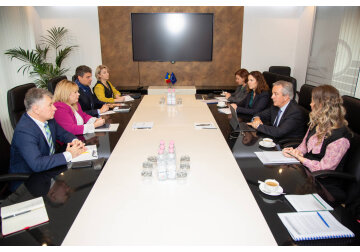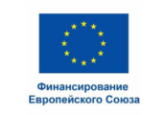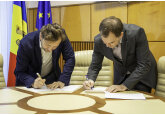
Partnership with EBRD is crucial to support reforms and Moldova's private sector, while EBRD investments play a catalyzing role for other significant private investments – the NBM
Anca Dragu, Governor of the National Bank of Moldova (NBM) stated this, during a meeting with a delegation of the European Bank for Reconstruction and Development headed by Francis Malige, EBRD Managing Director for Financial Institutions. According to the National Bank, the sides discussed the EBRD's cooperation with the Moldovan banking sector and the stimulation of lending to small and medium-sized enterprises (SMEs). The topics covered ranged from economic reforms and investment opportunities to the progress in the financial sector in the context of Moldova's accession negotiations with the European Union. Anca Dragu described Moldova's banking sector as stable, capitalized and highly liquid. At the same time, she said that the NBM pays special attention to the development of the local capital market, which is the basis of Moldova's economic development. “Investments and reforms are key elements of the EU accession process. Therefore, the partnership with the EBRD is crucial to back reforms and support the private sector. The EBRD's investments play the role of a catalyst for other significant private investments with natural compliance with governance rules,” said Governor of the National Bank of Moldova. During the meeting, the EBRD representatives presented the projects and financial instruments launched to facilitate access to financing for small and medium-sized enterprises in Moldova. The initiatives are aimed at reconfiguring the credit portfolios by extending the maturities and reducing excessive liquidity, as well as at achieving the objectives of enhancing the sector's competitiveness through a series of technical assistance actions offered in this respect. As noted by the NBM, on February 23, 2023, the EBRD Board of Directors approved the Country Strategy for Moldova for 2023-2028. One of the strategic priorities is to support the development of a sustainable financial infrastructure by continuing an active policy dialogue with other international partners, such as the IMF and the European Union, in order to strengthen the financial sector by harmonizing national regulations with EU standards. //13.11.2024 - InfoMarket.







